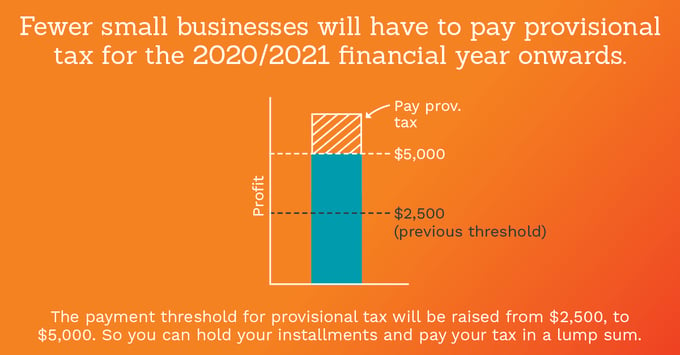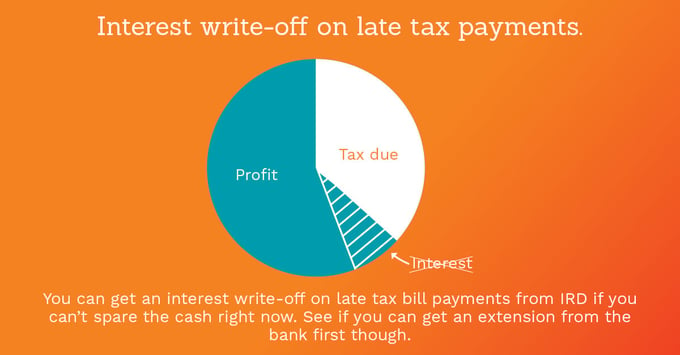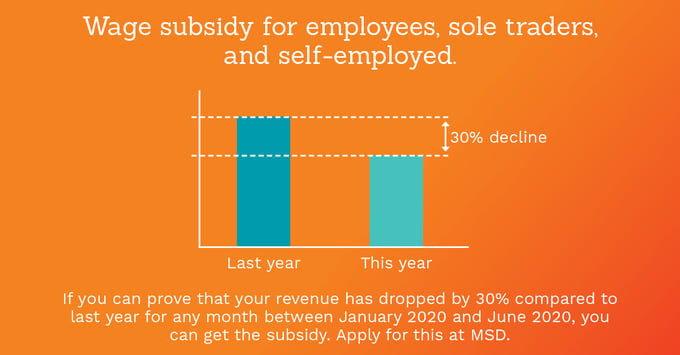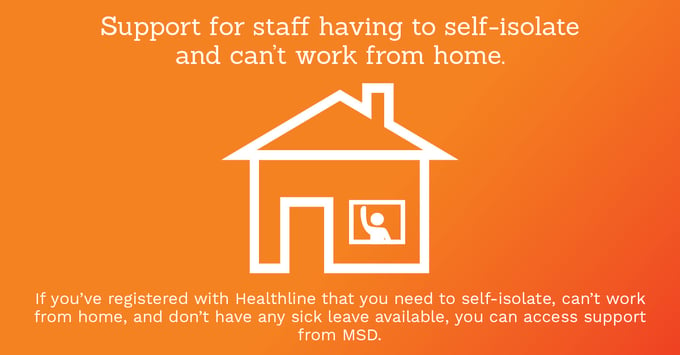COVID-19 NZ Government business support package – are you eligible?

The COVID-19 outbreak is at the front of many people’s minds right now, especially for business owners. The New Zealand Government has activated a business relief package to help affected businesses navigate these challenges. Here’s what you need to know.
The business support package
The government announced its $12.1 billion support for New Zealanders and business. This package includes:
- $2.8 billion in business tax changes to free up cash flow, including a provisional tax threshold lift, the reinstatement of building depreciation, and writing off interest on the late payment of tax.
- $5.1 billion in wage subsidies for affected businesses in all sectors and regions, available from yesterday. Full time workers will receive $585 per week under the scheme but to qualify, businesses need to show that they have had a 30% decline in revenue due to COVID-19 month-on-month for any month between January and June this year (compared to last year), and that they have talked to their bank about assistance.
What that means for you and your business
Provisional tax

If you’re a small business that pays provisional tax, the payment threshold has been raised from $2,500 to $5,000 for the 2020/2021 tax year onwards. That means if you have less than $5,000 tax to pay at the end of the 2019/2020 tax year, you can opt to pay a lump sum due April 7 2022 (if you use a tax agent/accountant, otherwise it will be due February 7 2022), rather than pay instalments throughout the year.
This will free-up some cash, and lower your compliance/accountant costs. This change will be permanent. Talk to your accountant or business advisor about this, or see Inland Revenue.
Late tax payments

If you’ve got a tax bill due on or after February 14 2020 but can’t spare the cash to pay it off in full, you can apply to IRD about getting an interest write-off on any late payments. You can then get a payment instalment agreement set-up. You’ll need to talk to your bank about getting lending for this first though. Talk to your accountant or business advisor about this, or again see Inland Revenue.
Wage subsidies

If you’ve got employees (or are a sole trader or self-employed), and will struggle to pay wages, you can get a wage subsidy from Ministry of Social Development. You will need to prove a 30% decline in revenue compared to last year for any month between January 2020 and June 2020.
The full-time subsidy (20 hours or more) is $585 per week, and the part-time subsidy (less than 20 hours) is $350 per week per employee. These payments will cover a 12 week period.
There are a couple of key steps you will need to take in your business first:
- Employers will need to declare that, to the best of their ability, they will continue to employ the affected employees at a minimum of 80% of their income for the duration of the subsidy period. For example, keep people working 4 out of 5 days a week.
- As an employer, you must also have taken active steps to mitigate the impact of COVID-19. For example, you’ve spoken to your bank and/or business advisor, and then you will need to sign a declaration.
As an employer you can apply on behalf of your staff at MSD.
Self-isolation support

If you need to self-isolate for COVID-19, can’t work from home, have registered with Healthline about your isolation, and don’t have any sick leave available, you can get a wage subsidy. This is open to sole traders and self-employed as well.
The full-time subsidy (20 hours or more) is $585 per week, and the part-time subsidy (less than 20 hours) is $350 per week. This is available for time spent on sick leave from March 17 2020. It will not be available for anyone who has travelled overseas after March 16 2020. As an employer you can apply on behalf of your staff at MSD.
What you can be doing
Cash flow
Review your business cash flow forecast for the next few months and consider how much headroom you need if incoming cash drops. If you think that you may have difficulties with cash contact your business advisor who can help you start a conversation with your bank, landlord, and other stakeholders as needed. We can also prepare a cash flow forecast for you if you need this.
Turnover
You must have a 30% decline in revenue for any month between January and June compared with the same month in last year to access the wage subsidy scheme. Keep an eye on turnover and speak to us if you need any help with doing so.
Speak with your bank
To access to the wage subsidy scheme you need to have evidence of discussions with your bank. We can help you be prepared for this conversation with the right reporting and numbers.
Employees
If you’re starting to look at whether redundancies need to occur in your business, or at the very least, a reduction in hours worked by your employees, please contact an HR expert to talk through your unique circumstances and provide advice around either retaining, or reducing the size of your workforce.
There can be significant financial implications for employers who fail to follow the correct process, which is additional stress and anxiety that can very easily avoided.
Business continuity plan
Now is a good time to look at how you address challenges in your business strategically, so you’ve got a plan to navigate any disruption. To ensure the long-term sustainability of your business, you should have a plan to ensure you can still conduct business during such times (known as a business continuity plan, or BCP). Contact your business advisor if you need help working on a BCP.
Look after yourself and your staff
There is no doubt that this is an unsettling time, no matter how you’re affected by COVID-19. Looking after your wellbeing should also be at the top of your list of priorities. The Mental Health Foundation has a support page on their website with some great tips. And don’t forget you can access the Xero Assistance Programme for free if you’re a Xero customer. This will give you access to free and confidential wellbeing support.
Get help
A problem shared is a problem halved and it’s important for business owners to be able to share their concerns, worries and challenges. Do not hesitate to reach out to your business colleagues, business advisors, accountants or other professionals for support and advice.
Often they will be able to provide clarity and objectivity, and help you formulate a step by step action plan to focus on.








